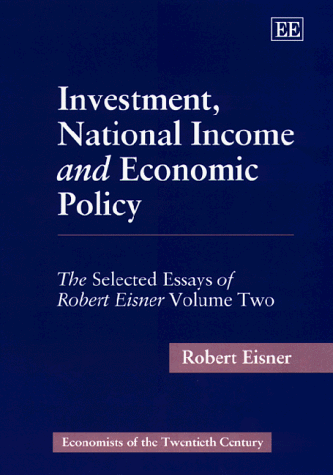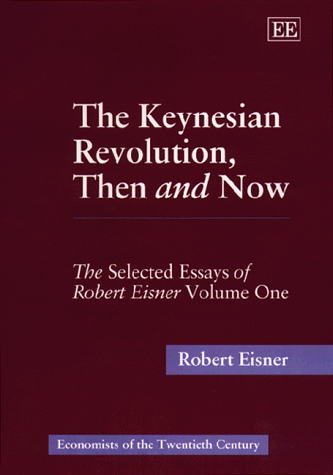Economists of the Twentieth Century
2 total works
Professor Eisner first examines the determinants of business investment and criticizes neoclassical theories on investment. He goes on to assess the role of tax incentives in investment and finds that tax policy is a flawed way of attempting to encourage investment. He also analyses national income accounting and offers some alternative measurements for calculating national product. Professor Eisner then examines the implications of war for the economy and explores the macroeconomic consequences of disarmament including its possible effects on unemployment. Lastly, he addresses the conflict between economic policy and principle; particularly concerning the environment, insurance and the theory of choice, academic freedom and the elderly.
Professor Eisner is fundamentally concerned with the determinants of employment and growth in a market economy. In this book, he provides a rigorous analysis of the permanent income hypothesis, the multiplier, interest rates, the liquidity trap, consumption and saving, depreciation, unemployment and growth models. He goes on to examine fiscal and monetary policy and the measurement and effects of budget deficits over the post-war period, challenging the view that budget deficits should necessarily be avoided. Professor Eisner also offers new measures of saving, investment and national income and product, which provide new insights into the economic factors affecting current welfare and future growth. Finally, he discusses the importance of full employment and criticises the idea that there is a natural rate of unemployment.

